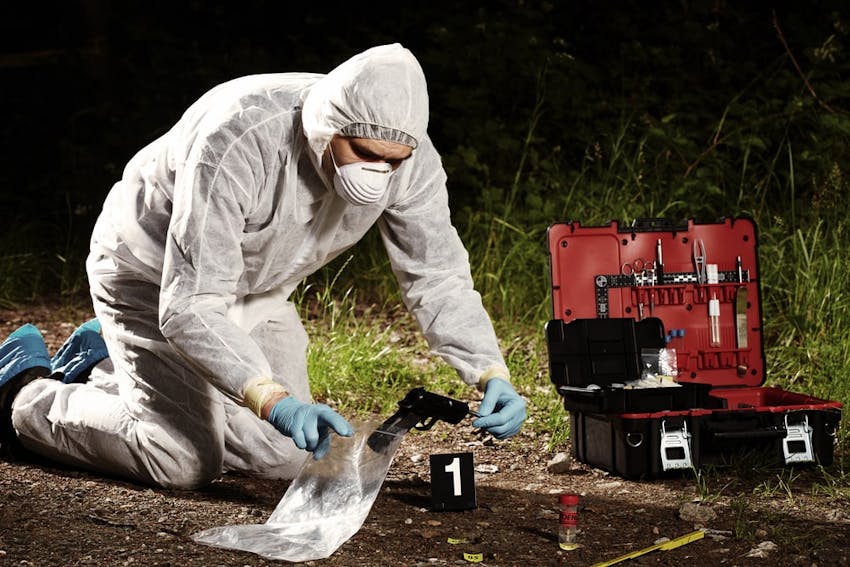Blog
Is Tampering with Evidence a Serious Crime?
3.13.2024
Physical evidence plays an important role in both civil and criminal cases. This evidence helps judges and juries decide the outcome of a case. If someone tampers with the evidence or provides false evidence, it can directly impact this outcome.
Physical evidence plays an important role in both civil and criminal cases. This evidence helps judges and juries decide the outcome of a case. If someone tampers with the evidence or provides false evidence, it can directly impact this outcome.
This is why tampering with evidence is a criminal offense. The criminal justice system imposes penalties such as fines and jail time upon anyone guilty of evidence tampering. Since tampering with evidence can directly obstruct justice by allowing someone to avoid a sentence, preventing a person from proving they are innocent, or even causing a parent to lose custody, the law is very strict about these matters.
It is imperative that you choose an experienced criminal defense attorney who will be committed to protecting your legal rights in these types of scenarios. Very Law in Pittsburgh provides a client-focused approach that gets results. This blog post will teach you more about evidence tampering, penalties, and the best defense strategies against these charges.

What Is Considered Evidence Tampering?
Tampering with or fabricating physical evidence can occur in various ways that many people don’t even realize are illegal. Seemingly innocent acts can cause someone to face tampering with evidence charges under Pennsylvania law.
Evidence tampering can be such conduct as swallowing illegal substances like drugs to avoid an arrest when stopped by law enforcement officers, hiding a weapon that was used to commit a crime, destroying a subpoena, or erasing electronic files related to a crime.
While it is not the most serious offense you can face, there are punishments for those who are convicted of evidence tampering. However, the prosecution must prove certain factors to get a conviction.
They will need to show that you deliberately destroyed, concealed, or suppressed a key element of evidence and that you purposefully altered the outcome of an investigation or proceeding. Simply put, evidence tampering is a crime that requires intent. You must be shown to have done this deliberately. If they cannot demonstrate your intent of tampering or knowledge that your conduct would change the outcome of an ongoing criminal investigation, they likely won’t secure a conviction.
Naturally, it’s challenging for them to prove this, but it will also be difficult for those accused of evidence tampering. You will want to consult with a criminal defense attorney about the best course of action when facing evidence tampering charges.
What to Know About the Penalties for the Criminal Offense of Evidence Tampering
In some states, if you destroy or tamper with evidence, you could face felony charges. Many states consider these actions as a third-degree felony. In Pittsburgh, however, it is a second-degree misdemeanor.
A person can be charged with tampering with evidence by altering, concealing, destroying, or removing records, documents, or other types of evidence. Tampering also applies to falsely presenting evidence in an attempt to mislead police officers, investigators, or other public servants.
Second-degree misdemeanors in Pittsburgh can carry a maximum penalty of jail time limited to two years along with a fine of up to $5,000. Even though tampering with evidence is not a felony charge in this state, it is still a serious charge that can impact your future and your freedom. You should discuss your case with a lawyer to find out what steps to take.

How an Experienced Criminal Defense Attorney Helps Fight Tampering with Evidence Charges
For tampering with evidence or any other criminal offense, you are presumed innocent unless the prosecution can prove otherwise.
The best way to fight these charges is to work with a law firm that has successfully represented cases like yours. They can help you create strong defense strategies like the ones below.
Lack of Intent
Prosecutors must prove that you intended to tamper with evidence. You may not have been aware that something you destroyed, concealed, or altered was involved in a crime.
Mistake of Fact
You may have mistakenly believed the things you destroyed had no relevance to any official proceedings. If so, your attorney can defend you based on a mistake of fact as you were unaware that it might be evidence relevant to any crime.
Unaware of Official Investigation or Official Proceeding
Perhaps you concealed something well in advance of any investigation or potential proceeding. In that case, it would not be evidence tampering as you did not know it was officially being investigated or there was a proceeding.
Duress
If you have a co-defendant in your charges, you may be able to claim duress if they forced you to destroy evidence. You can argue that you did not voluntarily commit these acts and only did so because you were under a real threat of physical harm for not complying.
Invalid Search or Seizure
Another way to fight a tampering charge is by challenging an invalid search or seizure. Tampering cases often come from drug crimes. If your attorney can refute probable cause, the evidence may be suppressed.
Tampering with evidence may not be the most serious offense that you face. However, a person charged with such crimes is often unaware that they did anything wrong. Criminal law is exceedingly complex and there are many intricate factors that most people do not know.
For example, you may know it’s illegal to tamper with evidence, but you may not realize that you are destroying a piece of key evidence. Regardless, it’s important to speak with a criminal defense attorney immediately, one who will be committed to preserving your freedom. Contact Very Law today to discuss your charges.